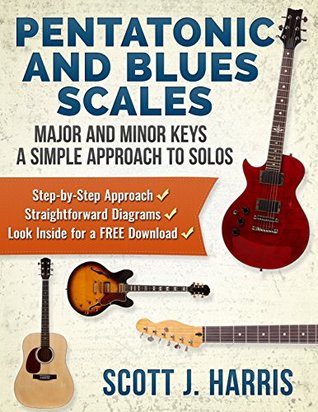

Most ebook files are in PDF format, so you can easily read them using various software such as Foxit Reader or directly on the Google Chrome browser.
Some ebook files are released by publishers in other formats such as .awz, .mobi, .epub, .fb2, etc. You may need to install specific software to read these formats on mobile/PC, such as Calibre.
Please read the tutorial at this link: https://ebookbell.com/faq
We offer FREE conversion to the popular formats you request; however, this may take some time. Therefore, right after payment, please email us, and we will try to provide the service as quickly as possible.
For some exceptional file formats or broken links (if any), please refrain from opening any disputes. Instead, email us first, and we will try to assist within a maximum of 6 hours.
EbookBell Team

0.0
0 reviewsLearn the Key to Solos...*
Inside Pentatonic and Blues Scales* you'll find...
A FREE PDF of 80 Positions & Patterns... 5 Major, 5 Minor, and 5 Blues positions... 13 Practical Exercises... Easy to understand diagrams... A simple approach to pentatonic theory... And MORE...
No purchase necessary for the free PDF of 80 Positions & Patterns!
Use Amazon's "Look inside" the book feature for the download link.
Words from the author:
"I never considered myself to be a musician when I was growing up. In fact, I was thoroughly convinced I did not have what it takes to be able to play music.
I took cello lessons and failed miserable. I took piano lessons without making much progress. I sort of learned to play the recorder in school, if you can call playing hot cross buns playing.
What I’m getting at is that I was a terrible musician. I couldn’t sing, I couldn’t keep time, I couldn’t play an instrument, the list of things I couldn’t do with respect to music is long.
I found this particularly frustrating because my father is an absolutely fantastic professional saxophone player. I figured somewhere in me there had to be an inherent talent for music.
I was very wrong.
What I realized as I grew older was that my father didn’t have an inherent musical talent either. What he did have was an unstoppable drive to succeed.
It took me a few years to get over my false idea that I could never be a good musician.
A few years earlier my father had bought me a guitar as a Christmas present. It was sitting in a dusty case in my room, neglected.
I had recently met a man named Jacob, another amazing musician. Jacob’s talent was with string instruments, particularly the bass. I asked his advice about what I should learn first.
He told me to learn music theory, so I went online and began to read. I read a lot and started to teach myself scales. I was still really terrible at the guitar, but I kept at it, and slowly I improved.
I stress the word slowly.
A couple weeks into this process I asked Jacob to teach me guitar, and he said he would. I quickly found out that Jacob–despite being a wonderful player–is a horrible teacher.
Jacob cannot think like a beginner, he cannot break down the knowledge and present it in bite sized pieces that are easy to swallow and digest.
I wrote this book with that in mind.